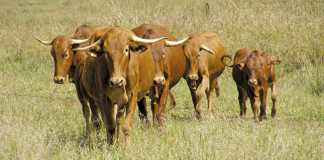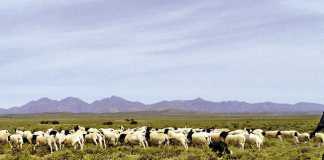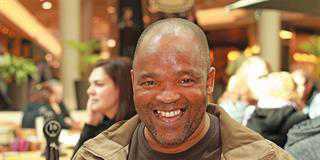
Photo: Peter Mashala
What are VKB’s goals for farmer development?
First, one needs to understand that the development of upcoming farmers is not an add-on to VKB, but an integral part of the company’s transformation strategy. It also forms part of the company’s future growth strategy. Our end-goal with black farmer development is socio-economic upliftment, more equal distribution of resources and income, stability, and food security of the poor in our region.
READ:Standard Bank’s new head of Agribusiness
This goal stems from our social responsibility and to improve our future business environment. We strive to alleviate specific constraints that developing farmers may have – illiteracy, lack of knowledge, skills, managerial and mechanisation capacity, insufficient soil status as well as limited access to capital, information, markets and inputs.
How do you plan to reach these goals?
Development is not merely a matter of selecting candidates and helping them to produce. It’s a long-term process wherein we must focus on sound development principles, create role models, and expand from there. We strive to provide leadership among role players because development can only succeed through a co-ordinated effort where government, agribusiness, commodity organisations, other development institutions and farmers work together.
We require farmers to take full ownership of their businesses, accepting final responsibility and risk. They need to be committed, contribute capital and engage fully, from decision-making to farming activities. We strive to provide them with an opportunity to make a success through a complete package of support – training, extension, finance, inputs and markets.
What is the VKB member’s share scheme and how does it benefit developing farmers?
The business model provides developing farmers with profound advantages, especially with regard to finance. A portion of profits made by the company is shared with members in the form of a member’s share, known as “bonus on turnover”. In order to qualify for this share, which has advantages such as discounts and other services, farmers must become members of VKB and pay a fee of R5 000. Normally, 10% of the share is paid out to farmers, while the balance accumulates to be accessed in the future, usually after 15 years. The accumulated share serves as collateral to obtain finance from VKB.
What had been VKB’s involvement with developing farmers before the recapitalisation programme?
VKB has demonstrated its commitment towards development – we’ve been involved in farmer development since 2009.
During this time, valuable lessons have been learnt and experience gained. In 2009/2010, we had 32 farmers and planted about 2 881ha in total, so each farmer planted an average of 90ha. In the 2010/2011 season, the number of farmers went down to 18, but 1 900ha were planted. The average was thus 105ha.
In 2011/2012, we had 31 farmers planting just over 2 600ha (average of 84ha) and last year it was 35 on more than 4 000ha (average of more than 114/ha). All this was done with assistance from organisations such as the Maize Trust, Winter Cereals Trust, Department of Agriculture, Forestry and Fisheries (DAFF), the department of agriculture (Free State), Department of Rural Development and Land Reform (DRDLR) and the Grain Farmer Development Association (GFADA), who provided grant funding.
VKB has been appointed to be a strategic partner by the DRDLR’s Recapitalisation and Development Programme (RADP). What is RADP?
It’s a national initiative that stems from the department’s Comprehensive Rural Development Programme. It’s designed to address some of the well-known challenges of land reform. In the past, beneficiaries received limited support and as a result, farms stagnated or went backwards. The RADP aims to turn the situation around by developing beneficiaries who have potential to become commercial farmers.
The initial focus is to concentrate on beneficiaries (those under the PLAS scheme), but later expand to other categories of emerging farmers. RADP is an ongoing process that will be sustained by the Recapitalisation and Development Fund (RDF), created from 25% of the baseline land reform budget per annum.
How is VKB involved in this?
The RADP is designed to include private sector participation – DRDLR provides capital and plays a monitoring role, while mentors or strategic partners (SPs) plan, implement and control the development process. We’re involved as a strategic partner who is also responsible for controlling funds and maintaining moveable assets. These relationships are formalised through contracts – service level agreements between the DRDLR and mentor/SP, and tripartite memoranda of understanding between beneficiaries, the DRDLR and mentors/SPs.
What is your exact role?
We’ve been appointed as a strategic partner for the department to five beneficiaries in the Thabo Mafutsanyane District (Free State). Two of the farms are in the Vrede area while the rest are near Lindley, Paul Roux and Rosendal. They are
mixed farming operations; the average size is 3 363ha with 862ha arable land.
Total DRDLR funding is projected to be R33 million over a five-year period, of which R12,8 million was due in the first year (2012/2013). We will have to be involved with every management, administrative and operational farming activity taking place. We have a contractual obligation to control funds and assets and implement the business plan while on the other hand, beneficiaries must be in charge.
Contact Moses Maine on 058 863 8111 or [email protected].
This article was originally published in the 23 August 2013 issue of Farmer’s Weekly.













